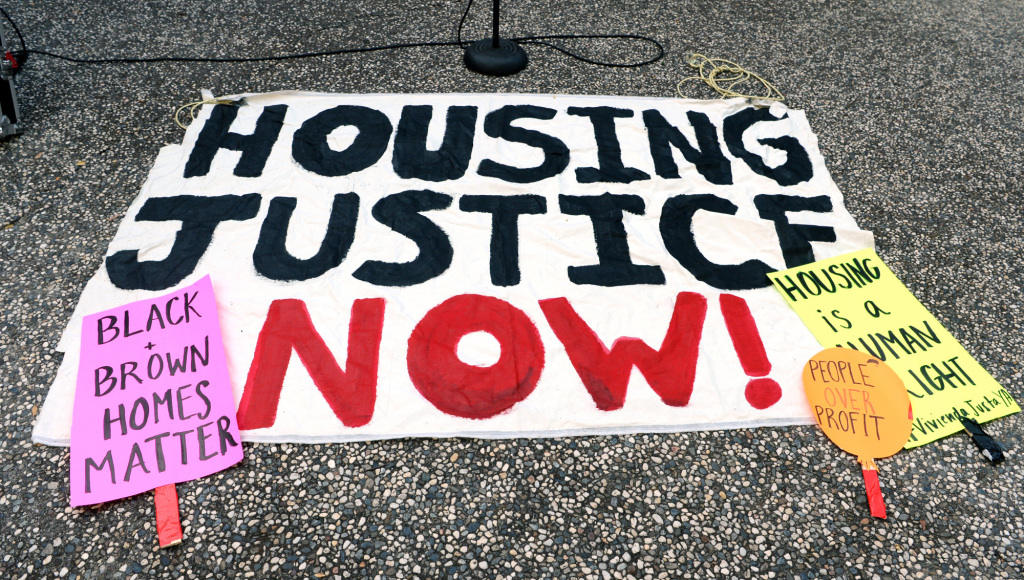Congratulations to Gov. Gavin Newsom for seeing an economic injustice few are willing to acknowledge.
It’s about time someone in power finally addressed the inequity of the pandemic era’s housing relief programs.
Newsom and the state legislature have agreed to spend $5 billion to $7 billion in relief cash to pay off unpaid rent bills for lower-income Californians. This would also help recoup losses for landlords who carried much of housing’s financial burden over the last 15 months.
Let’s ponder how different the treatment was for the ownership world vs. rental.
Owners, the ownership industry and mortgage makers got a massive, largely federal bailout that helped many participants who didn’t actually need financial assistance.
Conversely, the rental slice of the housing market — a decidedly lower-income populace — and their landlords, many of whom are mom-and-pop owners, got the equivalent of cake crumbs.
Yes, eviction moratoriums allowed renters to skip paying for their apartments. But many of those plans required some rent repayment and the opportunity for the landlord to use legal remedies to collect debts.
In the ownership world, cash-strapped borrowers — some using the pandemic as an excuse — were allowed to defer house payments, in some cases up to 30 years, with no blemishes on their credit history.
Systemic poor-ism
How this nation, its leadership and financial industries handled housing’s slice of the economic emergency is an example of what I’ll politely call “systemic poor-ism.”
Many people are financially unstable due to forces outside of their control. The system, so to speak, has rarely been very kind to the have-nots. And the poor tend to be renters.
Consider 2020. Quick moves ensured the economic damage created by lockdowns did not collapse ownership markets or the financial systems that help them run. That swift action likely was a lesson learned from the missteps of the Great Recession’s lopsided relief plans.
Last year, the powerful Federal Reserve slashed already low interest rates to historic lows. And the central bank bought at least $1 trillion in mortgage securities that fuel loan making.
Forbearance relief allowed lenders to easily place missed loan payments on the back of mortgage notes. Other aid allowed loan servicers to avoid financial ruin. Those low rates also helped homeowners cut payments by refinancing their mortgages.
Yes, these efforts stabilized the ownership market. But the continuation to this day has created a massive and undeserved financial windfall for many participants — owners, buyers, builders and anybody in the housing transaction business.
Compare that generosity with what tenants and landlords got. Roughly 900,000 California households missed rent payments — each with an average amount of $4,600 unpaid, says a study by PolicyLink.
The rental world’s help, simply put, was essentially a payment time-out. There were no firm terms for how losses accrued amid moratoriums might be shared or recouped.
Reality check
So, it’s encouraging to see Newsom trying to narrow the pandemic’s housing aid gap. If this payback plan becomes state policy — and there are no guarantees — the cash outlay will do a little to help the longer-term plight of California renters.
Before the pandemic, a renter’s chances of joining the ownership class were small due to already high home prices. Continued “systemic poor-ism” translates to that dream becoming nearly impossible today.
The reality check is admitting the Fed’s cheap money policies primarily benefit those wealthy enough to borrow. These financing bargains ballooned home prices across the nation to unthinkable heights — far in excess of any extra buying power created by record-low interest rates.
Of course, that cheap money could overheat housing values to a degree that the market suffers yet another collapse. That calamity might slash prices, creating chances for more California renters to join the privileged ownership group.
Unless, the nation comes to ownership’s rescue — again!
Jonathan Lansner is business columnist for the Southern California News Group. He can be reached at jlansner@scng.com










